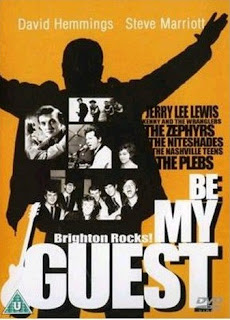 |
| The Pentabus tent in Carding Mill Valley |
This afternoon the first performance of Alice Birch’s play The Lone Pine Club was performed in Carding Mill Valley, Church Stretton, by the Pentabus Rural Theatre Company.
Malcolm Saville’s Lone Pine stories were my favourite books as a child and I am delighted to see them living on in this form.
But I am a little surprised too. Alice Birch, for instance, looks far too young to have read the books as a child – the first Lone Pine story appeared in 1943 and the twentieth and last in 1978.
So I asked Elizabeth Freestone, the artistic director of Pentabus, how the play came to be written:
“I've known Alice Birch for a few years,” she told me. “She grew up in rural Herefordshire and I grew up in rural Sussex so we have much in common. We were chatting one day about working together on something and got talking about a children's show that was about the countryside - that could encourage children to play outdoors and to engage in imaginative play too. I'd read the Lone Pine books when I was a child (my Dad read them to me - he was the Saville generation and grew up on them) and gave them to Alice to read. The idea grew from there.”
The play turns out to be based on elements of five of the Lone Pine books, more or less fitting the five National Trust venues in which it will be performed this summer. The four original members of the Club appear on stage: David, Peter (full name Petronella) and the twins Dickie and Mary. Saville’s best villain, the tweed-clad Miss Ballinger, also appears.
The connection with the National Trust is important, says Freestone: “We tour nationally with all our productions, visiting places that are meaningful to the play. In this case we wanted to try and reach places that had links to the Lone Pine books. We wanted to partner with the National Trust because they have
a brilliant campaign running to get children to play more outdoors.
"So, working with them, we identified National Trust landscapes that had the right kind of infrastructure to support the show and that linked to the books. Unfortunately we couldn't find a place in Yorkshire, but Northumberland is a lovely venue and it’s the next best thing.”
As to the casting, she tells me that they have cast adults in their early twenties). They are playing the characters as they are in the final the book series, Home to Witchend, when the so Peter and David are in their late teens and the twins are somewhere in their early teens. They had all aged about four years over the 35 years of the series’ existence.
When I edited the Malcolm Saville Society’s newsletter we agreed that modern technology (mobile phones, GPS) meant that the books’ plots no longer work. Elizabeth Freestone is complimentary about Saville’s plotting – “I actually think Saville's plotting is very modern. All the story structures revolve around the idea of 'Meanwhile…', so he's writing a kind of split screen effect much of the time.” – and says she can never get a mobile signal where she lives in the country anyway.
Nevertheless, she says that the Saville family has allowed Pentabus to be very free with the adaptation. They have stayed true to the spirit of the original books but changed many of the plot details around to show the range of Saville's writing about landscape and give the characters the chance to go on an emotional journey.
And much of Saville’s language survives in the play. Freestone says its style and feel is that of the Fifties: “Some words have been updated, but there's certainly no attempt to make it contemporary.”
Dickie Morton was my first literary hero and I am proud to have met his real-life model, Malcolm Saville’s younger son, the late Reverend Jeremy Saville, several times. But I fear that much of the twins’ dialogue in the early books might sound silly to modern ears.
Freestone reassured me: “The twins can be a little annoying - but they are also brave and very funny. On stage they make a great comedy double act.”
At the back of our conversation was my fear that modern children would simply not be able to relate to the world described in the Lone Pine books. I wrote
an article on this theme for the Guardian last year.
But Elizabeth Freestone told me something rather wonderful: “During rehearsals we went into a school and showed them the first scene. Today we did a dress rehearsal for 15 children to see how they followed it. All the children immediately wanted to go outside and play and make secret clubs of their own. I hope they found it inspiring.
“The play encourages exploration in the countryside as it also encourages imaginative play - there are no tricks in the show, every sound effect is made live by the actors. We hope it makes children realise they can do anything.”
You can see The Lone Pine Club at these National Trust venues over the summer:
- 18-26 July - Carding Mill Valley, Church Stretton, Shropshire
- 30 July - 2 August - Sheffield Park and Garden, Sheffield Park, Uckfield, East Sussex
- 6-9 August - Buckland Abbey, Garden and Estate, Yelverton, Devon
- 13-16 August - Sheringham Park, Upper Sheringham, Norfolk
- 20-23 August - Wallington, Cambo (near Morpeth) Northumberland
All tickets can be booked via the National Trust Box Office on 0844 249 1895. Tickets are £15 for adults and £7.50 for children.
More details on the Pentabus website.





































